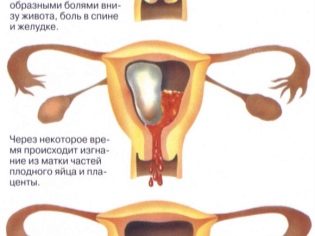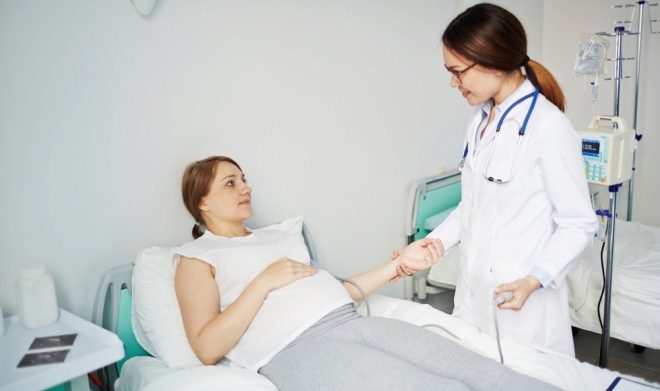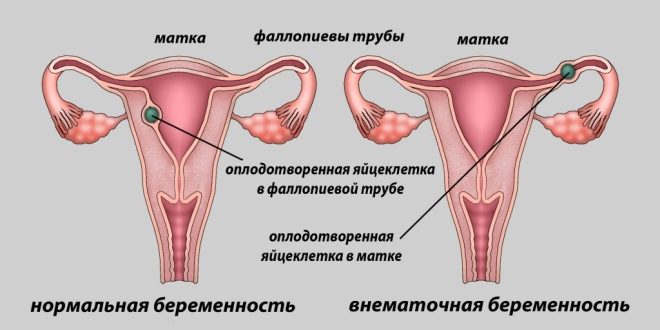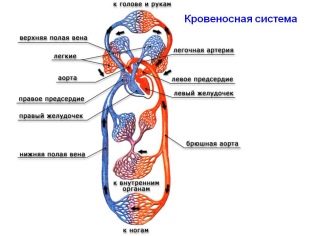What weeks of pregnancy are considered dangerous?
Pregnancy proceeds with the alternation of several stages. Each period of this special time has its own characteristics. This article will tell you what weeks of pregnancy are considered dangerous.
Most dangerous time
In certain periods of intrauterine development of a baby, his future mother should be more attentive to her health. These periods are characterized by specific changes occurring in the children's organism. If at this time a pregnant woman does not follow the recommendations of the doctors prescribed by her, then this can lead to extremely adverse consequences. Such behavior may even cause the formation of various intrauterine defects and defects in the baby.
The entire period of carrying a child is conventionally divided into several periods. This division in obstetric practice is not accidental. In each trimester, specific changes occur both in the body of the future mother and her baby. Knowledge of certain patterns of intrauterine development of each such period contributes to the fact that doctors can identify certain pathological changes in time. The entire period of intrauterine development is divided into three trimesters.
First trimester
This period begins with the first day of successful conception and lasts until the thirteenth week. There are several “critical” weeks in the first trimester. So, quite a dangerous time is 4, 8 and 12 weeks of pregnancy. Obstetricians and gynecologists advise pregnant women at this time to carefully monitor their state of health and, if possible, avoid strong physical exertion, as well as the effects of stress, since this period is characterized by a rather high risk of spontaneous miscarriage.
In the fourth week, many future mothers do not even suspect that they are expecting a baby. Some women at this time may get sick and start taking antibiotics. This can lead to negative consequences, since at this period the baby’s internal organs begin to be laid. Also, not only antibiotics, but also alcohol consumption and smoking can lead to negative consequences.
In the second
This period begins after 13 weeks and lasts up to 27. This time is a kind of “equator” of pregnancy. At this time, the fetal development of the fetus is also quite intensive, but the expectant mother feels relatively well. In this period of pregnancy, many women have already disappeared signs of toxicosis and mood stabilizes.
However, there are several dangerous days during the second trimester. According to experts, they fall on week 16 and 17. At this time, the fetus is already a little older and begins to exert mechanical pressure on the cervix. Obstetricians and gynecologists note that it is at this time that pathology such as cervical insufficiency. This pathological condition is dangerous because it can cause miscarriage or premature discharge of amniotic fluid.
If the expectant mother was diagnosed with cervical insufficiency for a period of 16-17 weeks, then she is prescribed special recommendations.In some cases, the woman may even be hospitalized in the hospital ward to save the current pregnancy.
She is also recommended to limit exercise and not to lift heavy objects.
In third
This gestation period is the final one. It begins, respectively, from the 28th week and continues until the immediate birth of the crumbs into the light. At this time, specific changes begin to occur in the body, which prepare it for the upcoming genera.
Usually, the 3rd trimester of a healthy pregnancy is quite stable. However, even in this period there are several dangerous weeks. Obstetrician-gynecologists consider such critical periods 29, 32 and 34 a week. They note that at this time the intrauterine is often recorded fetal hypoxia. This condition is characterized by a decrease in the oxygen supply to the body of the baby growing in the mother's womb, which leads to the formation of pathological changes in it.
The risk of intrauterine hypoxia in the third trimester of pregnancy is significantly higher in women who have had infectious diseases. Moreover, they could get sick even at the very beginning of pregnancy, and the negative consequences of diseases manifested themselves only at this time.
Fetal hypoxia is a condition that requires the special attention of doctors. In order for childbirth to go on without any negative consequences, the expectant mother needs to treat her health carefully.
Critical periods of fetal development
The process of intrauterine development is rather complicated. Within a few months, a child develops from a fertilized female reproductive cell. Every day intrauterine development of the fetus is characterized by specific changes. Reproductive experts identify several critical periods of fetal development.
The first
Thus, the first critical period occurs at the very beginning of pregnancy, namely, at the time of implantation. The fertilized egg is usually implanted in the uterus wall. 6-7 days after fertilization. This process is very vulnerable. Unfortunately, cases of impaired implantation in obstetric practice are not uncommon.
The situation is also dangerous if the fertilized egg is implanted not into the wall of the uterus, but into the fallopian tube. This situation leads to the development of ectopic pregnancy, which has no prospect of prosperous development. Nature has carefully envisioned the death of unviable embryos in the early stages of their development. The presence of a number of chromosomal pathologies can lead to the non-viability of the embryo.
If there are such pathologies, then the rejection of a fertilized egg can occur already at the implantation stage, and knowing relatively dangerous periods of pregnancy, one can determine the time when it flows quite smoothly.
An embryo can also be “expelled” from the uterus, which in the first days after fertilization was negatively affected by alcohol or drugs, which the woman took at this time, not knowing about her pregnancy.
Another period characterized by the risk of the formation of various pathologies is time from 4 to 8 weeks of pregnancy. At this time, the active development of placental tissue begins. If it is laid incorrectly, then in the course of the future pregnancy may be violated. Pathology of the placenta can negatively affect the process of fetal development of the child.
The placenta is an important anatomical element. It is necessary not only to ensure the blood growing in the baby’s uterus containing nutrients and oxygen, but also for the synthesis of hormones. This "fetal organ" "synthesizes a number of hormonal substances that are necessary for the full course of pregnancy. If the placenta fails to cope with this role for some reason, then the risk of developing pathological changes and even a sudden termination of pregnancy is high.
10-12 weeks - a period when the first pathological changes in the functioning of placental tissue can manifest. Obstetricians and gynecologists recommend at this time to pay special attention to their health for women in whom pregnancy has occurred as a result of in vitro fertilization techniques. Hormonal imbalance, developed as a result of various pathologies of the placenta, can become a threat of miscarriage.
Second
The second most dangerous period is in the time span. from 15 to 20 weeks of prenatal development of the baby. At this time there is an active development of neurons - cells of the central nervous system. Also, this stage of pregnancy is characterized by the fact that the baby begins to differentiate the basic structures of the brain. The negative impact of various factors can cause the formation of various pathologies of the nervous system.
20-24 week of pregnancy is another dangerous period. At this time in the children's body develop systems responsible for blood circulation and blood clotting. If for some reason this process is disturbed, then the baby may develop further congenital diseases of the circulatory system.
Third
Another critical period begins from week 28 and lasts up to 34. At this time, the risk of intrauterine hypoxia is quite high. This condition can impair the functioning of the nervous and cardiovascular systems in the fetus, which can later cause a number of congenital diseases.
Knowing the relatively dangerous periods of pregnancy, you can determine the time when it flows quite smoothly.
However, doctors recommend expectant mothers to closely monitor their state of health every day, and not only on dangerous days of fetal development. Critical periods are only conditional times when the risk of the formation of various pathologies is increased. However, this does not mean that such pathological conditions will appear.
If the pregnancy is without complications, then in this case worry about the development of any pathologies is not worth it.
Absolutely safe periods of pregnancy are not. The impact of adverse factors can lead to the fact that pathology can appear at any time. In order to reduce the risk of their occurrence, obstetrician-gynecologists advise expectant mothers to monitor day and rest regimen, diet, and also to limit stress.


























